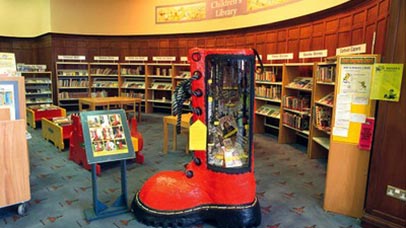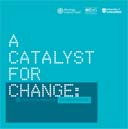- The Activist Museum Award
- Addressing the museum attendance and benefit gap
- Articulate
- Birmingham Museum Trust Vision
- Books connect 2
- Building inclusive museums
- Buried in the footnotes
- Cabinet of Curiosities
- A Catalyst for Change
- Advancing equity: Challenging embedded whiteness in London Museum
- The Cinematic Musée Imaginaire of spatial cultural differences [CineMuseSpace]
- Contested Desires Constructive Dialogues
- Cultural activity within historic houses
- Developing learning advocates in the East Midlands
- Developing learning advocates in the North West
- Developing new audiences and promoting social inclusion
- Disorder, dissent and disruption
- Encountering the Unexpected
- Engage, learn, achieve
- Engaging archives with Inspiring Learning for All
- Engaging the City
- Cultural value of engaging with museums
- Cultural value of engaging with museums
- EuNaMus
- Evaluating Creativity
- Everyone Welcome 2019-2021
- Everywhere and Nowhere
- Exceptional & Extraordinary
- EXILE at Kingston Lacy
- Generic learning outcomes
- girl.boy.child
- Growing social role of botanic gardens
- HumanKind
- Impact of generic learning outcomes
- Imperial War Museum North
- Including Museums
- Inspiration, identity, learning: the value of museums
- Inspiration, identity, learning: the value of museums, second study
- Leaders in Co-creation?
- Learning impact research project
- Learning through Culture
- The Madonna of the pinks
- Making Meaning in Art Museums 1
- Making Meaning in Art Museums 2
- Mapping the change phase 2
- Mindful Museum
- Mirror
- Museu do Samba, Brazil
- Museums and an ageing population
- Museums and social inclusion: the GLLAM report
- Museums health and wellbeing
- Co-production Framework at National Museums Liverpool
- New Walk Museum vision
- Not for the likes of you
- Open House
- Open minds
- Participatory practices at the Science Museum
- Permissible Beauty
- Prejudice & Pride: exploring LGBTQ lives at the National Trust
- Prisoners, Punishment and Torture
- Redefining the Role of Botanic Gardens
- Research network to advance museum ethics
- Researching Learning in Museums and Galleries 1990-1999
- Rethinking Disability Representation
- shOUT
- Small museums and social inclusion
- Stories of a Different Kind
- Supporting Decolonial Futures
- Talking statues
- TCS project
- The Museum as a Space of Social Care
- The Queer Heritage and Collections Network
- Their Past Your Future 2
- Seeing the museum through the visitors’ eyes
- Trans-Inclusive Culture
- Museums and the Transgender Tipping Point
- Unfinished portrait at Felbrigg Hall
- “In the past we would just be invisible”
- What did you learn at the museum today?
- What did you learn at the museum today? Second study
- Return to the start of the menu
- RCMG
-
Research archive
- The Activist Museum Award
- Addressing the museum attendance and benefit gap
- Articulate
- Birmingham Museum Trust Vision
- Books connect 2
- Building inclusive museums
- Buried in the footnotes
- Cabinet of Curiosities
- A Catalyst for Change
- Advancing equity: Challenging embedded whiteness in London Museum
- The Cinematic Musée Imaginaire of spatial cultural differences [CineMuseSpace]
- Contested Desires Constructive Dialogues
- Cultural activity within historic houses
- Developing learning advocates in the East Midlands
- Developing learning advocates in the North West
- Developing new audiences and promoting social inclusion
- Disorder, dissent and disruption
- Encountering the Unexpected
- Engage, learn, achieve
- Engaging archives with Inspiring Learning for All
- Engaging the City
- Cultural value of engaging with museums
- Cultural value of engaging with museums
- EuNaMus
- Evaluating Creativity
- Everyone Welcome 2019-2021
- Everywhere and Nowhere
- Exceptional & Extraordinary
- EXILE at Kingston Lacy
- Generic learning outcomes
- girl.boy.child
- Growing social role of botanic gardens
- HumanKind
- Impact of generic learning outcomes
- Imperial War Museum North
- Including Museums
- Inspiration, identity, learning: the value of museums
- Inspiration, identity, learning: the value of museums, second study
- Leaders in Co-creation?
- Learning impact research project
- Learning through Culture
- The Madonna of the pinks
- Making Meaning in Art Museums 1
- Making Meaning in Art Museums 2
- Mapping the change phase 2
- Mindful Museum
- Mirror
- Museu do Samba, Brazil
- Museums and an ageing population
- Museums and social inclusion: the GLLAM report
- Museums health and wellbeing
- Co-production Framework at National Museums Liverpool
- New Walk Museum vision
- Not for the likes of you
- Open House
- Open minds
- Participatory practices at the Science Museum
- Permissible Beauty
- Prejudice & Pride: exploring LGBTQ lives at the National Trust
- Prisoners, Punishment and Torture
- Redefining the Role of Botanic Gardens
- Research network to advance museum ethics
- Researching Learning in Museums and Galleries 1990-1999
- Rethinking Disability Representation
- shOUT
- Small museums and social inclusion
- Stories of a Different Kind
- Supporting Decolonial Futures
- Talking statues
- TCS project
- The Museum as a Space of Social Care
- The Queer Heritage and Collections Network
- Their Past Your Future 2
- Seeing the museum through the visitors’ eyes
- Trans-Inclusive Culture
- Museums and the Transgender Tipping Point
- Unfinished portrait at Felbrigg Hall
- “In the past we would just be invisible”
- What did you learn at the museum today?
- What did you learn at the museum today? Second study
Research Centre for Museums and Galleries (RCMG)
A Catalyst for Change
Funded by the Heritage Lottery Fund (HLF), A Catalyst for Change is a retrospective evaluation of the impact of the Open Museum in Glasgow, established as an innovative project to take museum collections out to those communities which the museum service had failed to reach.

Background
Starting as a pilot project in 1990, long before the term 'social inclusion' had entered the museum sector’s vocabulary, the Open Museum was working with some of the most excluded groups and communities in Glasgow; women's groups from the large social housing projects on the periphery of the city, users of mental health services, black community groups, refugees and asylum seekers to name just a few. The Open Museum worked with these groups to create exhibitions which toured community venues.
Aims and objectives
This study traces the roots of the Open Museum, to establish the principles and ethos that shaped its development and the impact it had on those individuals with whom it engaged. It considers the challenges facing the service and raises some questions that can be explored to inform future development. For the HLF, the research was an important development in their approach to evaluation, since it was the first piece of work in which they deliberately considered the gathering of qualitative evidence.
Outcome
A Catalyst for Change: The Social Impact of the Open Museum (Report, 2002) (PDF, 423KB)